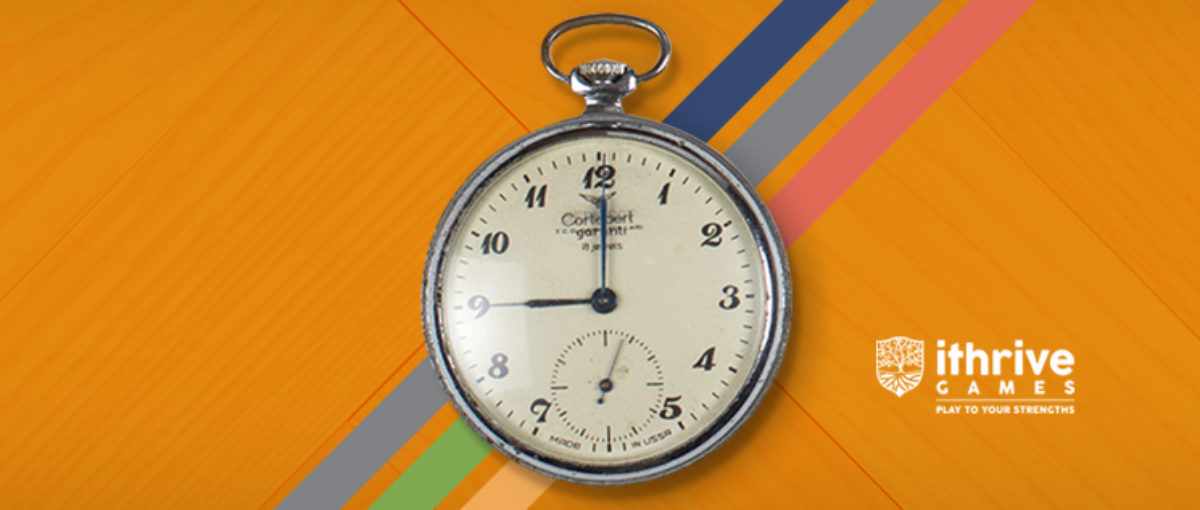
Making a Game in One Hour: The Power of Our Choices
Editor's note: At iThrive Games, we're always curious about how video games—playing them and making them—can support personal growth and transformation, especially for teens and young adults just venturing out on their life's path. Here, guest author Belinda Zoller, community manager for Extra Credits, reflects on a game design project that delivered meaningful insight...and fueled a key career decision.
***
It was just after 7 p.m. on Dec. 4, 2016 when my friends called wanting to go on a leisurely drive downtown. I packed up my tiny, outdated tablet PC that ran only an hour or so on battery life and jumped in the passenger seat of my friend's car with one goal: make a game.
It was an unconventional office space for making a game, but I told myself it was now or never. I had already procrastinated on my entry for the upcoming Self-Care Game Jam for weeks.
At the time, I wasn't working in games full-time, but that's where I really wanted to be. I just didn't know how to move forward. I had let myself get wrapped up in graduating from school and "learning to adult" and I was feeling disconnected from a greater purpose for my life beyond everyday survival. My day job back then was marketing for a B2B startup. I loved the work itself, but the company's mission and clients didn't leave me feeling like I was making a real difference, creatively or otherwise, in the world.
Even though I lacked a road map for how, exactly, to get where I wanted to be, deciding to make a game that night represented driving in the right direction.
My laptop's terrible battery life created a one-hour time limit to reach my goal and also inspired my subject: an interactive journal entry about the decisions we make every moment.
Taking this time to lay aside any existential concerns about my long-term worth as a creator, I dedicated my game's purpose to exploring my decisions in this exact moment. I'm in a car with my friends, going on a leisurely downtown drive, with no distracting internet access. What are the (ordinary) ways this scenario could play out? What choices am I making right now as I'm both participating with my friends and, at the same time, observing all of us experiencing this moment together?

A screenshot featuring one of the choices December 4, 2016 asks the player to consider.
I listened to the passionate conversations between the other people in the car as they discussed relationships and life. I stared at the hazy Christmas lights in the neighborhood and concentrated on not getting motion-sick. Those observations were opportunities for choices I could make, even when I felt limited in my choices for how to spend my daily working life.
Hyper-focusing on these mundane choices I found myself making throughout my design process—when to listen in or speak up in the conversations, when to pay attention to the outside scenery versus the blank Twine editor—made me curious about the bigger choices I found myself seemingly unable to make. Why was I unable to move forward when I knew what I really wanted to be doing? What outside pressure was I allowing to keep me stuck?
Much like the driving car that was my design office for the evening, the personal drive to create and express ourselves is not really a constant acceleration the way we tend to use it in sentences: "They lack the drive to finish this game." Really, we're always driving, even if it means waiting our turn at the intersection for a green light to flash, for that motivation to keep going even when we're running low on inspiration. Being able to make this short "trip" to the destination of just finishing and publishing a game, any game, empowered me to realize that, no, I don't have to keep being a passenger in my own life.
This realization guided me through the rest of the week. On Monday I found myself laid off. Instead of panicking about my seeming lack of direction or income, I took it as a sign that my instincts on Sunday night were spot on: I had no more excuses to procrastinate my passion. By Friday I had renegotiated a previous part-time gig into more stable, consistent employment at one of my dream companies. I wasn't directly working on games, but I was nonetheless ecstatic to contribute my skills to a cause I cared about—helping other people find their own creative fulfillment.
What unfolded in December 4, 2016 doesn't necessarily fit my vision of what a game that I make could look like. For one, it offers far too few and far too mundane choices. You'll find at least one typo in it. There will never be a polished version or a second pass. But when I look back at it as an experiment in exploring my sense of purpose, I realize that game design has the power to shine a light on the choices that are already in my power to make.
***



